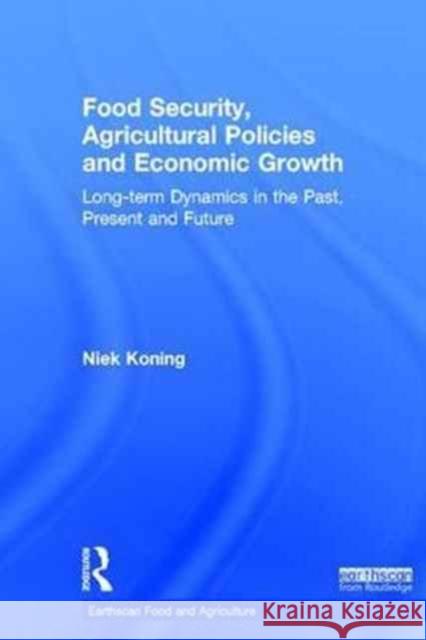Food Security, Agricultural Policies and Economic Growth: Long-Term Dynamics in the Past, Present and Future » książka
Food Security, Agricultural Policies and Economic Growth: Long-Term Dynamics in the Past, Present and Future
ISBN-13: 9781138803046 / Angielski / Twarda / 2017 / 284 str.
Food Security, Agricultural Policies and Economic Growth: Long-Term Dynamics in the Past, Present and Future
ISBN-13: 9781138803046 / Angielski / Twarda / 2017 / 284 str.
(netto: 672,22 VAT: 5%)
Najniższa cena z 30 dni: 654,86
ok. 22 dni roboczych
Bez gwarancji dostawy przed świętami
Darmowa dostawa!
Using a political-economic approach supplemented with insights from human ecology, this volume analyses the long-term dynamics of food security and economic growth. The book begins by discussing the nature of preindustrial food crises and the changes that have occurred since the nineteenth century with the ascent of technical science and the fossil fuel revolution. It explains how these changes improved living standards, but that the realization of this improvement was usually dependent on government support for smallholder modernization. The author sets out how the evolution of food security in different regions has been influenced by their farm policy choices and how these choices were shaped by local societal characteristics, international relations, and changing configurations in metropolitan countries. Separate chapters are devoted to the interaction of this evolution with debates on food security and economic growth and with international economic policies. The final chapters highlight the new challenges for global food security that will arise as traditional sources of biomass production and the more easily extractable reserves of fossil biomass become depleted or can no longer be used. Overall the book emphasizes the inadequacy of current explanations with regard to these challenges, and explores what is needed to ensure a sustainable future.











